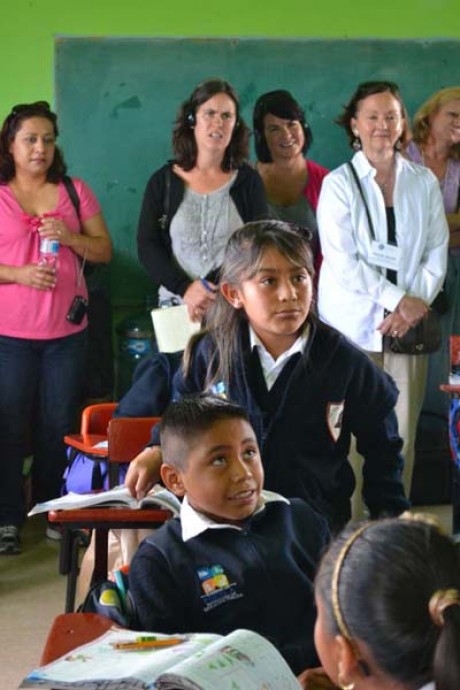Learning in Mexico
North Carolina health professionals visit Mexico to help address Latino health issues here

—Nurse Practitioner Martha Brinsko
Did you know that 22 percent of babies born in Durham County are Latino? North Carolina has one of the fastest growing Latino immigrant populations of any state in the nation and most are from Mexico. Health care leaders across the state have turned to the Center for International Understanding (CIU) in Raleigh to learn about changing demographics and for help identifying practical solutions to strengthening health delivery in North Carolina for everyone.
Health leaders from four counties — Durham, Mecklenburg, Wake and Orange — in October joined CIU's Latino Initiative Study Program and visited Puebla and Mexico City. It was CIU's fifth Latino Initiative delegation focused specifically on health issues and improving health outcomes among the Latino population in North Carolina.
In Wake County during the spring 2011 tornadoes, said Sue Lynn Ledford, director of the Wake County Health Department, her agency struggled with finding ways to communicate health concerns to Hispanics affected by the natural disaster. "Probably the bigger gaps were understanding the culture and what would be acceptable and normal in their situation," she said.
Ledford was among those who made the Oct. 8–14 trip. So did Martha Brinsko, the adult nurse practitioner for the Charlotte Community Health Clinic, where 60 percent of the patients are Hispanic. She and a team of others from Mecklenburg County are working on a Web portal for community information specifically geared to the Spanish-speaking population. She went to Mexico to look for guidance on how their website should be developed and distributed.
"Being able to link them to community services has been a real challenge," Brinsko said. "The more we understand their culture and how they link to services in their home country, the better we will be able to provide that here in the United States."
Since 1998, more than 700 people in North Carolina have taken part in CIU's Latino Initiatives. Alumni have enacted changes, such as creating mobile health clinics for Latino communities and a Latino community center.
Delegations focus on key policy issues impacting North Carolina, from education and economic development to law enforcement and health care.
All groups examine the push-pull of immigration and have the opportunity to meet with colleagues in their field in Mexico as well as Mexican families who have relatives currently working in North Carolina.
No state funding pays for the travel portion of CIU's initiatives. Participants in the Latino initiative 2012 program received support from Blue Cross Blue Shield of North Carolina, Capitol Broadcasting Company, Presbyterian Healthcare Foundation, the Redwoods Group, Taku Fund of Triangle Community Foundation, and Z. Smith Reynolds Foundation.
The CIU promotes awareness, expands understanding and empowers action through global education. Its programs for business, policy and education leaders aim to make North Carolina the most globally engaged state in the nation. Founded in 1979, CIU is part of the University of North Carolina system. Learn more at www.ciu.northcarolina.edu.
-
Share this story:

